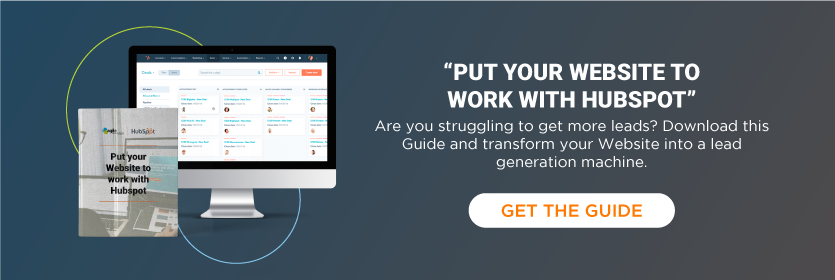Looking to build your company website but not sure which platform is right for you? It's a tough choice since there are numerous different ones to choose from. In this article, we'll analyze 10 different platforms - 5 free and 5 paid - and help you decide which one is the best for you.
Top 5 free website builders
Companies don't go out of their way to give out stuff for free. However, with a little research (which we've already done for you), you can actually make a free website builder work.
Are you stuggling to get more leads? Download this free Guide and transform your website into a lead generation machine
Carrd
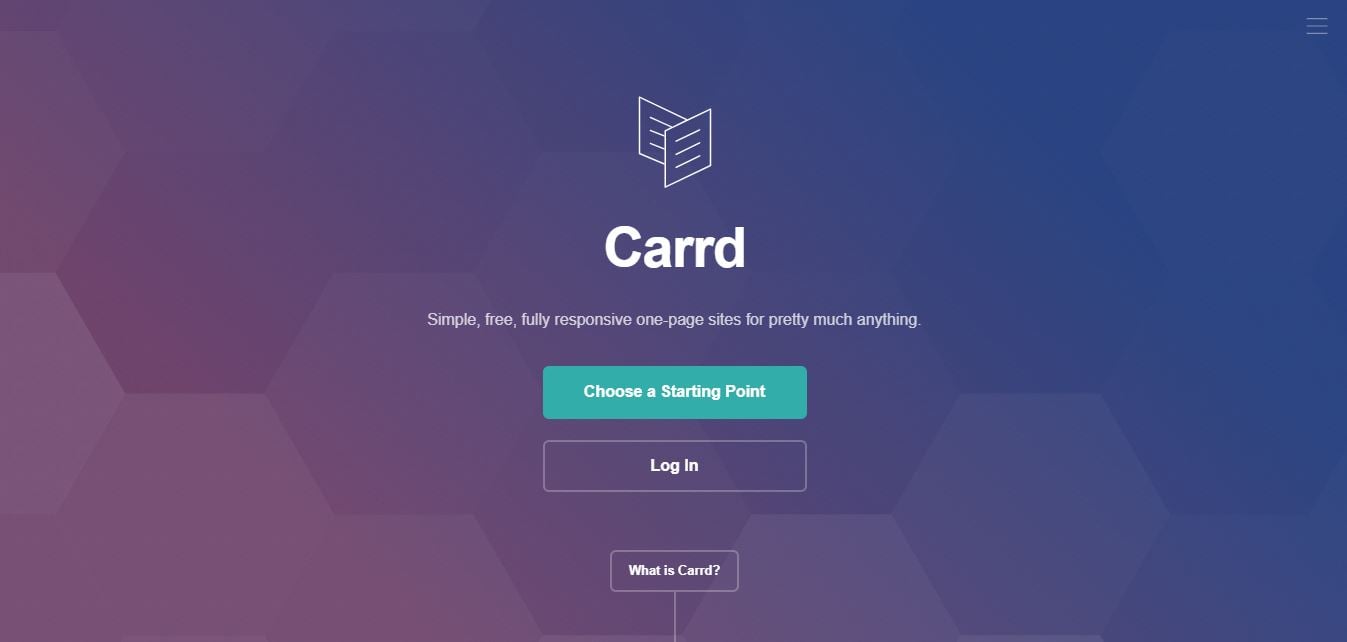
Carrd was created for building one-page websites. Because of this focus, it's probably the best website builder for this type of website. For example, all Carrd themes are specifically designed for one-page websites. While you can, technically, make such websites in other free builders, they won't be as intuitive. Plus, Carrd has a tiny, hardly noticeable ad on free websites.
WebNode
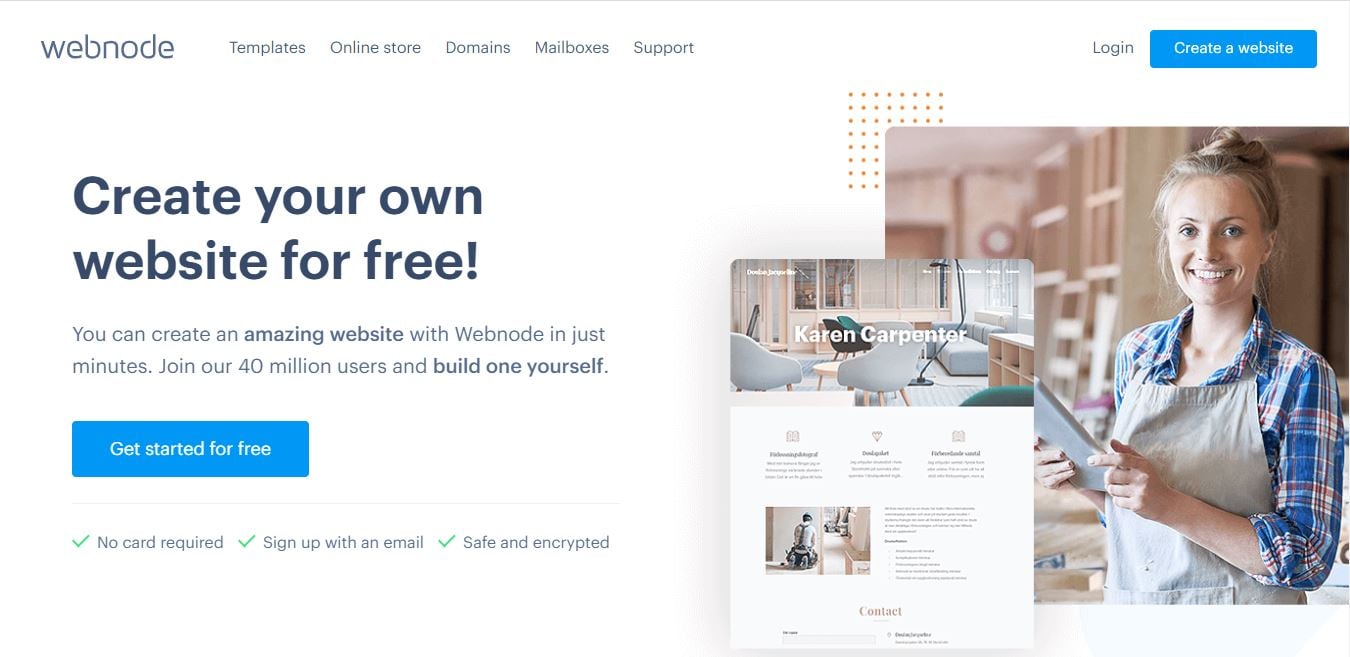
WebNode is popular for its ease of use and lack of ads. In order to suit your business's needs, it lets you build websites in different languages or on different platforms.
The websites created on WebNode are compatible with iOS, Mac, and Android devices and support eCommerce stores. It also provides you statistics that help to track the website's success.
Webflow
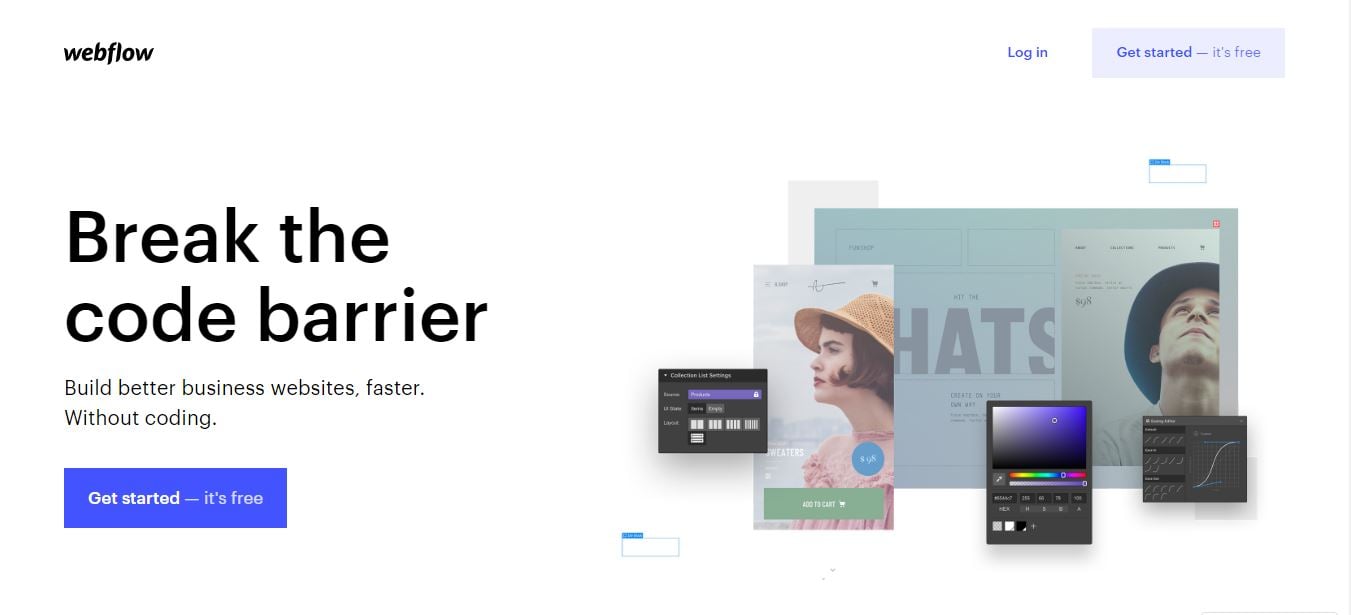
Webflow is recommended for those of you who want complete control and flexibility. The Webflow designer gives you the flexibility of front-end coding without actually requiring you to code.
You will need to understand the fundamentals of web design, but it allows for far more design flexibility than many other free website builders.
In addition, Webflow's free staging plan includes a CMS. This CMS lets you create collections, which are custom content types - you can think about them as a customizable database. For instance, you can define a blog post collection, add blog posts and you'll automatically get new pages for every new blog post.
WebStarts
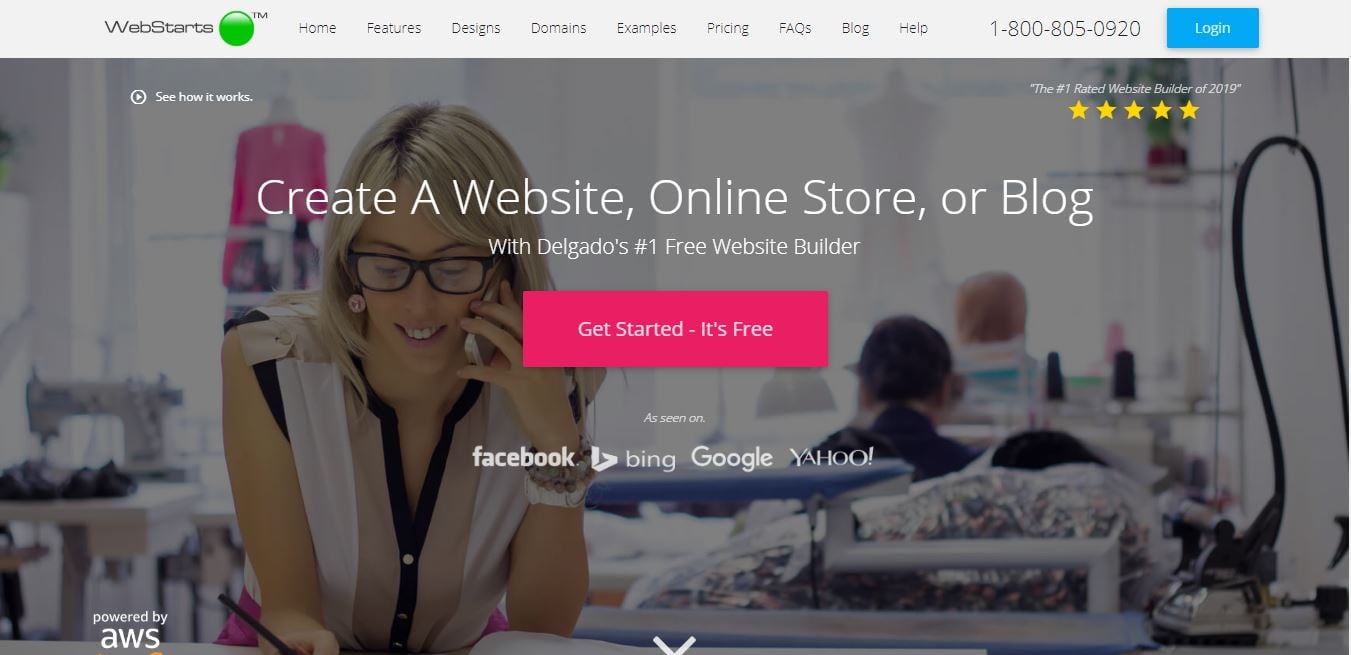
WebStarts has a broad collection of templates and a drag and drop functionality that's super user-friendly. Thus, it's pretty simple to build websites on WebStarts and the fact that what you see when you're designing the pages is exactly what your visitors will see when the site is published takes some of the guesswork out of the process.
Ucraft
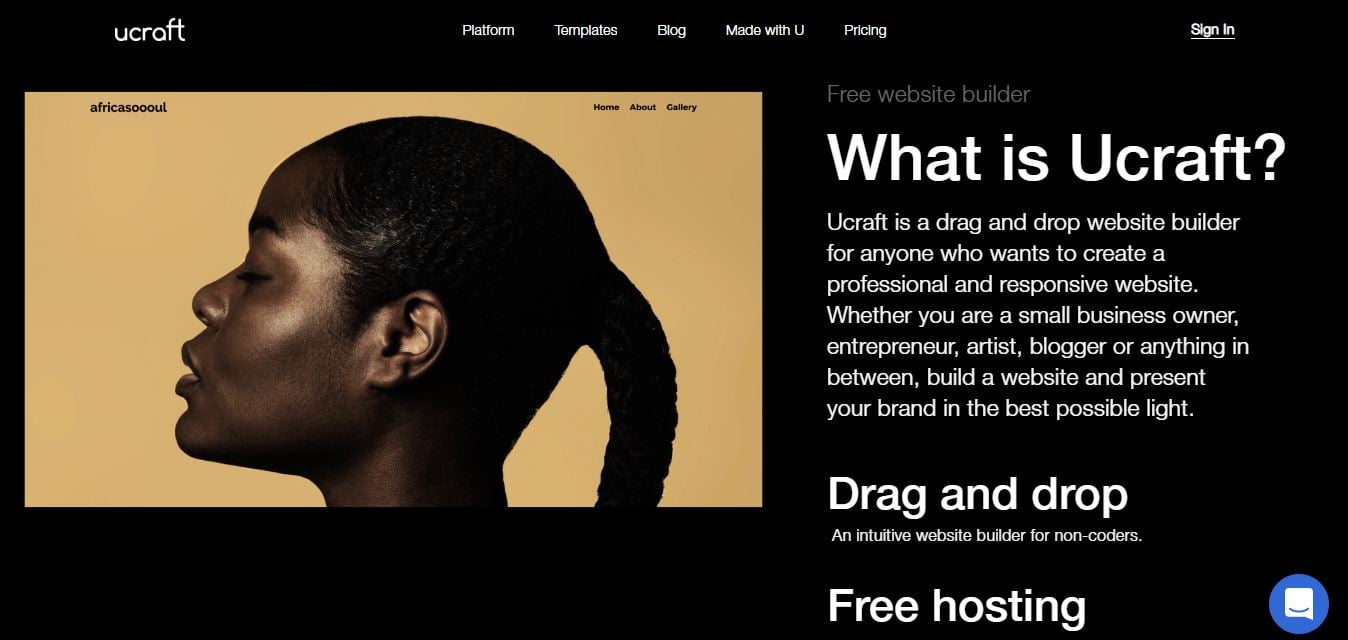
The number one reason to use Ucraft is that it allows you to connect your own domain name. Otherwise, Ucraft's free package is pretty solid, offering unlimited pages, Google Analytics, SSL, and a decent free subdomain in case you decide you don't want to connect to a domain name.
Top 5 paid website builders
We'll walk you through five great paid website builders and explain what unique strengths make them stand out.
HubSpot CMS
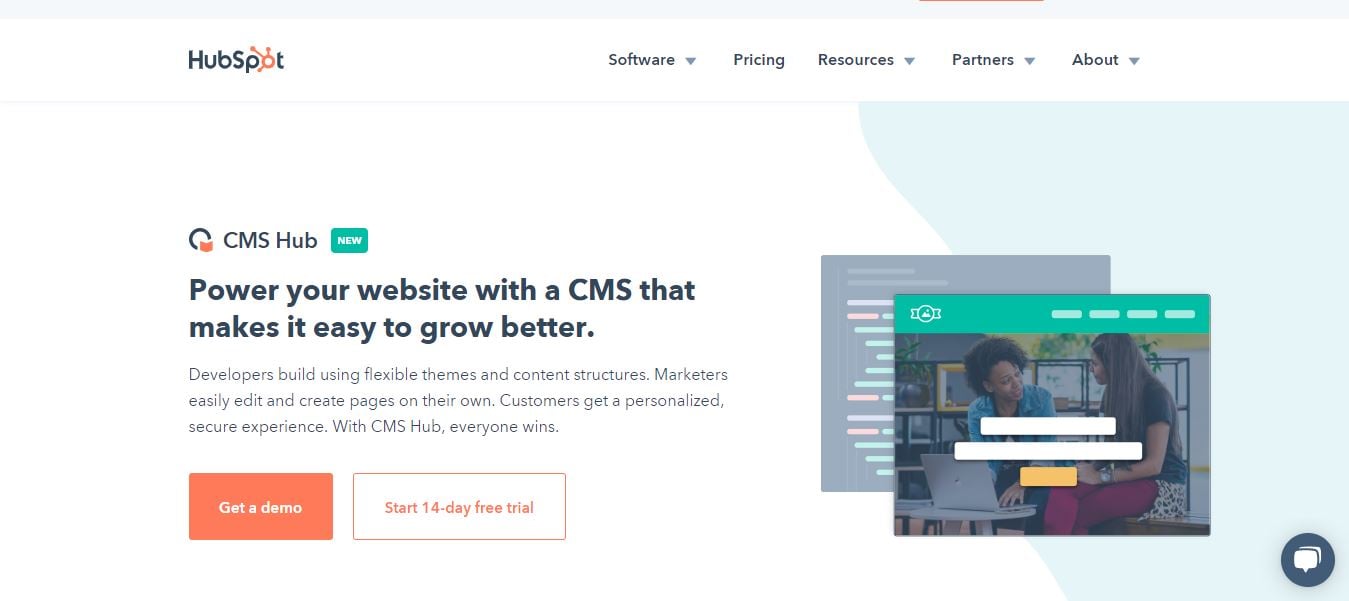
We love HubSpot CMS because it combines a lot of custom features that are easy to update even for inexperienced users with the flexibility to create a personalized design.
This platform also has an entire marketplace of templates that are easy to use and tailor. You can even collaborate with your digital marketing agency in order to create custom modules.
Any company can start with a simple website and then add on other service, sales, and marketing features. Depending on the plan HubSpot offers email nurturing, engagement tracking, A/B testing, detailed analytics, CTAs, landing pages with gated content, chat features, and conversion forms among other inbound marketing functionalities to help you attract and convert more customers.
Furthermore, its built-in CRM tool is something you won't find at other website builders. If you already use separate CRM software, it can be easily integrated into the HubSpot platform.
Wix

While it may seem a bit chaotic when you start using it, Wix gives you a lot of freedom to customize your company website.
The coolest thing about it is that when you build a page, you can drag any element anywhere on it, which is really freeing. They also support a multitude of features: live chat, eCommerce, booking, scheduling, and a bunch more.
Squarespace

Squarespace is easy, intuitive and quick to use and doesn't require any coding. It stands out with its awesome, clean, and modern templates. If you browse through the template gallery, you'll notice a similar look and feel: they're all neat, have bold typography, and include lots of space for big photos.
Squarespace also has a long list of features: a nice blogging platform, a suite of iOS and Android apps for managing your website, lovely audio players, a great donation system, strong eCommerce, and they even let you publish and syndicate podcasts.
Weebly
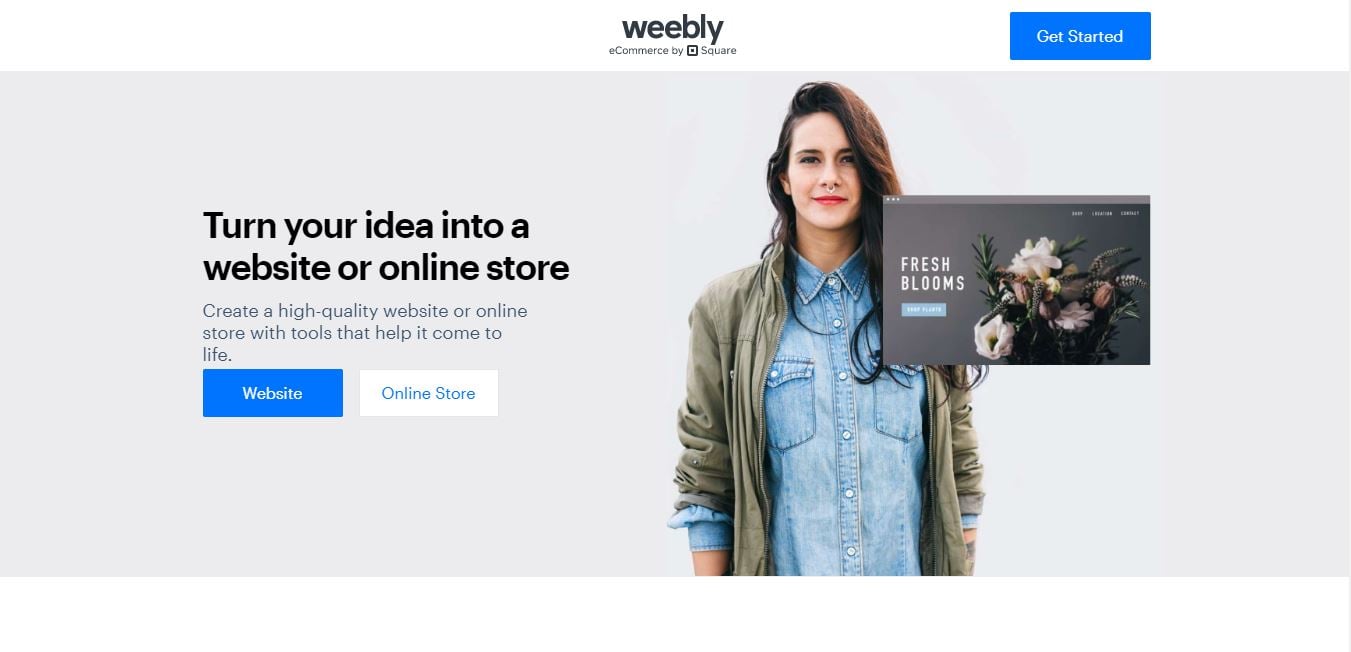
Weebly is super easy to use and highly recommendable to someone who isn't exactly tech-savvy. The interface is bold and clear and everything seems within reach.
A few of the strongest features Weebly offers include its blogging platform, eCommerce, membership system, and an app store that lets you install apps to extend the core functionality.
Strikingly
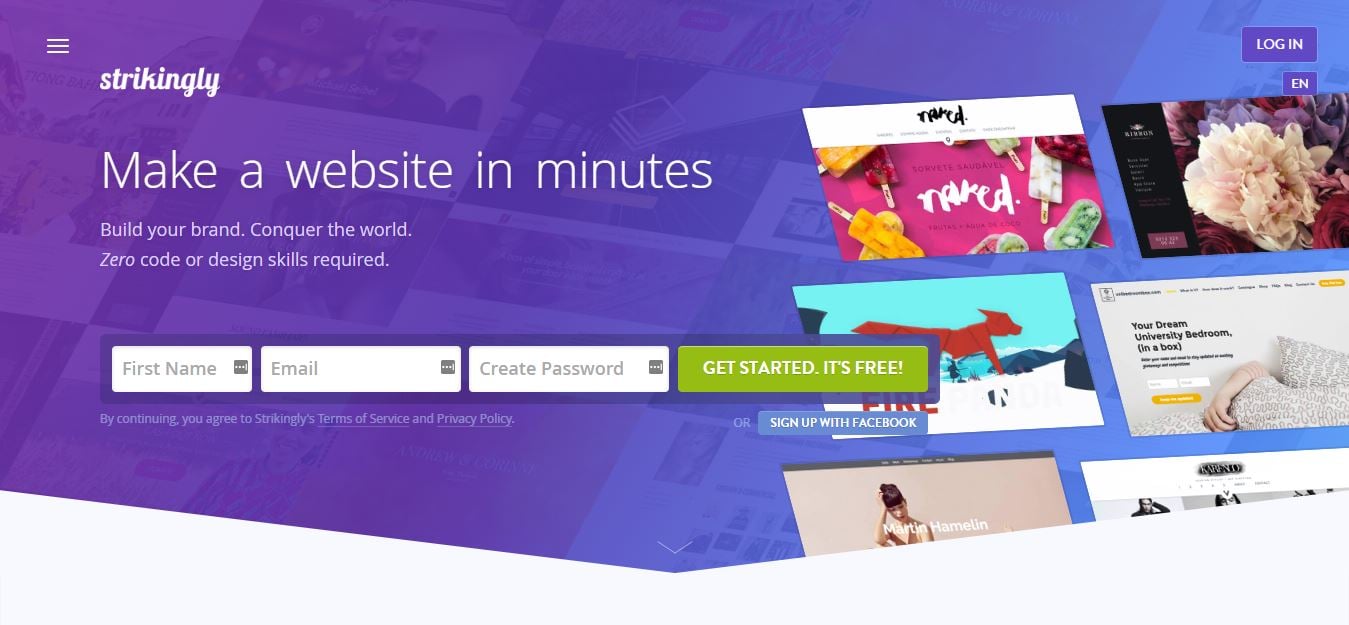
Strikingly are a nice option for one-page websites. Technically, you can have multiple pages on Strikingly, but they originally launched as a one-page website builder and the interface is still really well-suited for that.
The intuitive sections editor makes it easy to create and manage one-page websites.
If you're considering building a new website or revamping an existing one, get in touch with our team to discuss your options. We'll help you choose the platform that's the most suitable for your needs and use it to either create a website or give the existing one a makeover.

